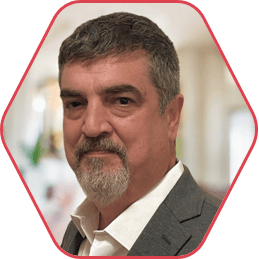I love the movie A Few Good Men. Great story, brilliant acting – some of the best that Jack Nicholson and Tom Cruise have done. The tension in the final court scene is a master class.
But while I do love it for all of that, that’s not why it’s one of my favorite movies.
The reason I think it’s a truly great movie is buried in a scene about two thirds of the way through. It’s not explosive, it’s almost understated. But I think it’s one of the most profound lessons about leadership I’ve seen in a work of art.
To provide a little context for anyone who hasn’t seen the movie: Cruise plays a Navy lawyer, Daniel Kaffee, whose late dad Lionel was a famous and respected lawyer and judge. And Daniel is in the unenviable position of trying to decide whether to actively go after the highly placed and respected Colonel Jessup (Nicholson) who he believes ordered an ‘educational’ beating (and subsequent death) of a soldier in the Marines.
For obvious reasons, he struggles with the decision. If he does it wrong – or if he is wrong – it could easily be the end of his legal career, certainly within the armed forces.
Daniel is unsure. He wants to do the right thing. He’s desperate to live up to the expectations of his late father. He wants to be successful. And maybe most importantly, he wants confirmation that he’s making the right choice.
Enter Sam Weinberg (Kevin Pollack), his second on the case. Daniel asks Sam if he would put Jessup on the stand and go after him. Sam emphatically says “No.”
Daniel asks him if Sam thinks his father would have put Jessup on the stand. And then Kevin Pollack delivers the best monologue I think I’ve ever heard about leadership:
“With the evidence we got? Not in a million years. But here’s the thing and there’s really no getting around this:
Neither Lionel Kaffee nor Sam Weinberg are lead counsel in the matter of US versus Dawson and Downey. So there’s really only one question: what would you do?”
And that’s it.
I’ve worked with some great leaders. Not one of them knew every answer going in. Not one of them got it right every time. To a man and woman, the great ones asked – craved – input. They knew how to listen. They welcomed dissent. And at the end of all that, they accepted and embraced (I’m sure sometimes with abject fear!) that their role was to face the fact that there was really only one question. What would they do.
I keep hoping, every time I look in the mirror and notice (yet more) grey, that I’m getting closer to being a good leader. I fear that’s not the way it works – that it’s a journey, not a destination. I get frustrated. I get pissy and tired and petulant. I long for magical certainty. You’ll be shocked, I’m sure, to know that that certainty never really comes.
But I do, often, in the worst of those moments, go back and watch that scene. Cause here’s the thing:
Leadership is choices.
And there’s really no getting around it.
Oh – and for the twelve people who don’t know the ending of the movie (spoiler alert!). He goes after Jessup. And it’s spectacular.
We at Further Advisory are experts and trusted advisors, bringing decades of experience to our client engagements, along with a bias toward both action and results. Our clients call us truth-sayers, and we proudly wear that badge. We can handle it.




